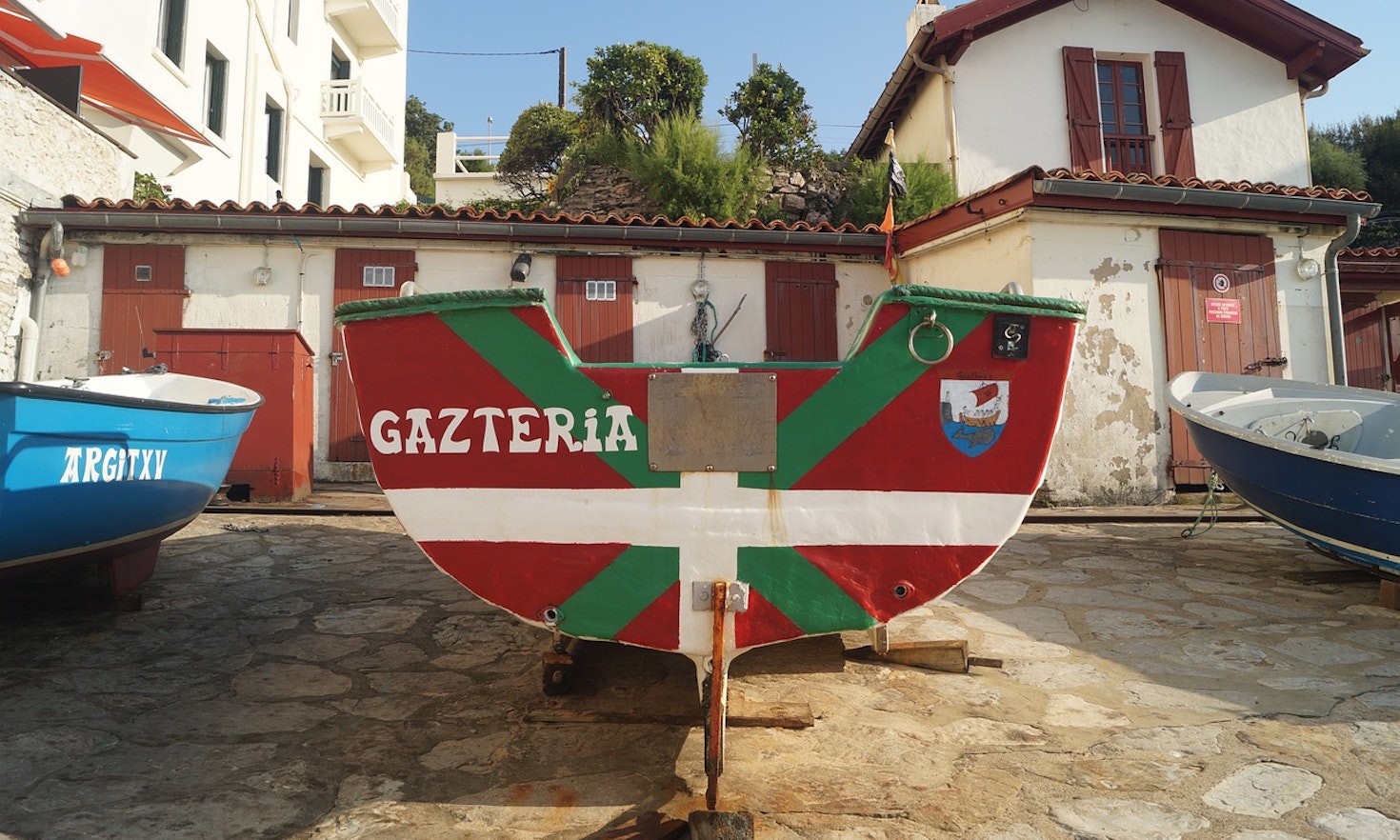Independent at last: the story of Usansolo or when the rules are for sale

The rationalization of the Spanish municipal map has been a recurring issue in recent times. In times of economic crisis, there have been numerous voices calling for rethinking and modernizing the municipal and provincial level, which has remained practically unchanged since its establishment in 1833. However, apart from some legislative changes that tried to stimulate the merger of municipalities and some controversial recent experience, the number of municipalities has continued to grow to its current 8,132.
The latest to join the list, at the end of 2023, was Usansolo with its population of only 4,500 and priorly a neighborhood of Galdácano (Galdakao in Basque).
A long-standing dispute
The secessionist aspiration of Usansolo’s inhabitants is not new since its residents have been demonstrating their will to separate from Galdácano for decades. Galdácano is a municipality located a few kilometers from Bilbao that, before the separation, had barely 30,000 inhabitants. Support for independence gained strength in the 1990s with the creation of a platform that demanded segregation from Galdácano and the constitution of Usansolo as an independent municipality. Those in favor of Usansolo becoming an independent municipality argued that the territory is located more than 4 kilometers from the center of Galdácano and that an autonomous administration, taking into account their problems and peculiarities, would allow them to better administer themselves in the event of an eventual separation.
The community pressure paid off in November 2022 when the Juntas Generales de Vizcaya: the provincial parliament of Biscay, approved the segregation of Usansolo from Galdácano and its constitution as the 113th municipality of Biscay. However, the joy was short-lived. The management commission in charge of the municipality until the local elections saw its request for inscription in the Registry of Local Entities of the Ministry of Territorial Policy, an indispensable condition to enjoy the consideration of independent municipality for legal effects, rejected.
This decision led to a bizarre situation: Usansolo was considered a municipality by the authorities of the province of Biscay, but not by the central government, leaving its residents in a sort of legal limbo. So, what was the reason for these conflicting opinions?
Two conflicting norms
The opposing decisions of the two administrations involved were due to the fact that both are governed by different regulations which establish different conditions for municipal segregation, especially with regard to the minimum threshold of inhabitants. Thus, the foral norm of territorial demarcations of Biscay indicates that in order to segregate, both the new municipality and the original one must have a population of at least 2,500 inhabitants, be financially sustainable and have sufficient resources for the fulfillment of the municipal competences. Given that these circumstances were met, the decision of the provincial parliament approved the creation of Usansolo as an independent municipality, thus satisfying the demands of its inhabitants.
The State legislation, on the other hand, sets the minimum number of inhabitants at 5,000. This figure was introduced after a reform approved in 2013 aimed at rationalizing the municipal model and guaranteeing the economic and financial solvency of the municipalities by preventing them from incurring excessive expenses. In light of said regulation, the Ministry of Territorial Policy not only rejected Usansolo’s claim, but also instructed the State Attorney’s Office to appeal the agreement of the Juntas Generales de Vizcaya, before the courts. The decision of the central government was based on the fact that, at the time of the segregation, Usansolo had 4,520 inhabitants, so that “it has not been accredited the fulfillment of the requirement established in article 13.2 of Law 7/1985, of 2 April 1985, regulating the Bases of Local Regime, related to the fact that the newly created municipalities can only be constituted on the basis of territorially differentiated population centers of at least 5,000 inhabitants".
A conflict between norms was in sight. On the one hand, Biscay argued that provincial legislation should prevail following the principle of subsidiarity. On the other hand, the State asserted the primacy of national over regional legislation since the Constitution assigns basic legislation on local governments to the central level.
Unforeseen elections and making a virtue out of necessity
Since the matter was to be decided by the courts, Usansolo could not participate as an independent administration in the local and regional elections of 28 May 2023. However, in the paradox of politics, these elections would be the first stone in creating a path to independence.
The election inflicted a heavy defeat for President Pedro Sánchez’s Socialist Party, catapulting the People’s Party to the government of most of the Autonomous Communities and provincial capitals. This was aided by the invaluable help of Vox’s radical right. The unexpected magnitude of the Socialist defeat led Sánchez to announce the anticipation of the general election for the month of July the following day. This decision was undertaken in the fear that the political cycle would turn unfavorable and with the veiled intention of capitalizing on the fear of Vox as an instrument to mobilize both the left-wing and the nationalist/secessionist vote. This strategy proved to be successful because, contrary to what most polls predicted, the victory of the People’s Party was insufficient to form a government, allowing for the investiture of Sánchez thanks to the support of various nationalist and pro-independence parties.
As expected, and in a new example of how Spanish politics have degenerated in recent years, the negotiation turned into an auction in which everything was for sale. Sánchez’s need to gain support meant that any concession was possible, regardless of the fact that the measure in question had been previously denied ad nauseam or that it might involve measures of dubious constitutionality, such as the amnesty for those involved in the Catalan independence process or the negotiation of various tax privileges for Catalonia, including a partial write-off of its debt. In the words of Sánchez, and with the aim of justifying his innumerable changes of mind with respect to what he stated during the electoral campaign, the need to add votes for his investiture has led him to “make a virtue out of necessity”. A euphemism that tries to hide his political pragmatism, in which any measure can be justified to fulfill his excessive ambition to stay in power.
Among the multitude of measures agreed upon with his nationalist partners, one of them stood out as unusual: the recognition of Usansolo as an independent municipality. In fact, the agreement between the Socialist Party and the Basque Nationalist Party contained a compromise: to pass a reform of the Law 7/1985 which lowers the minimum threshold of inhabitants for new municipalities to 4,000. This ‘urgent’ reform quickly materialized through Royal Decree-Law 6/2023, which resulted in the judicial appeal being dropped. Likewise, the central government proceeded to register Usansolo in the Register of Local Entities, making its segregation from Galdácano and its status as an independent municipality official.
The story of Usansolo is evidence of the lack of will that Spanish political forces demonstrate when it comes to ordering and rationalizing the local government system. The ad hoc modification of the rules was made with neither any technical justification nor ordered debate about the consequences of modifying the population threshold for new municipalities or its convenience in terms of their capacity to adequately provide public services to their inhabitants in a financially sustainable manner. The government had no problem in using emergency legislation to rush through a regulatory change that contradicted what it had been defending in court months earlier. Not surprisingly, the only reason for this legal reasoning was that it was part of a payment to stay in power for four more years. Gone are the days when public and/or territorial policies were based on longer-term considerations. Today, to the joy of the inhabitants of Usansolo, regulatory changes are for sale, it was simply a matter of finding the right price.

Citation
This content is licensed under a Creative Commons Attribution 4.0 International license except for third-party materials or where otherwise noted.







